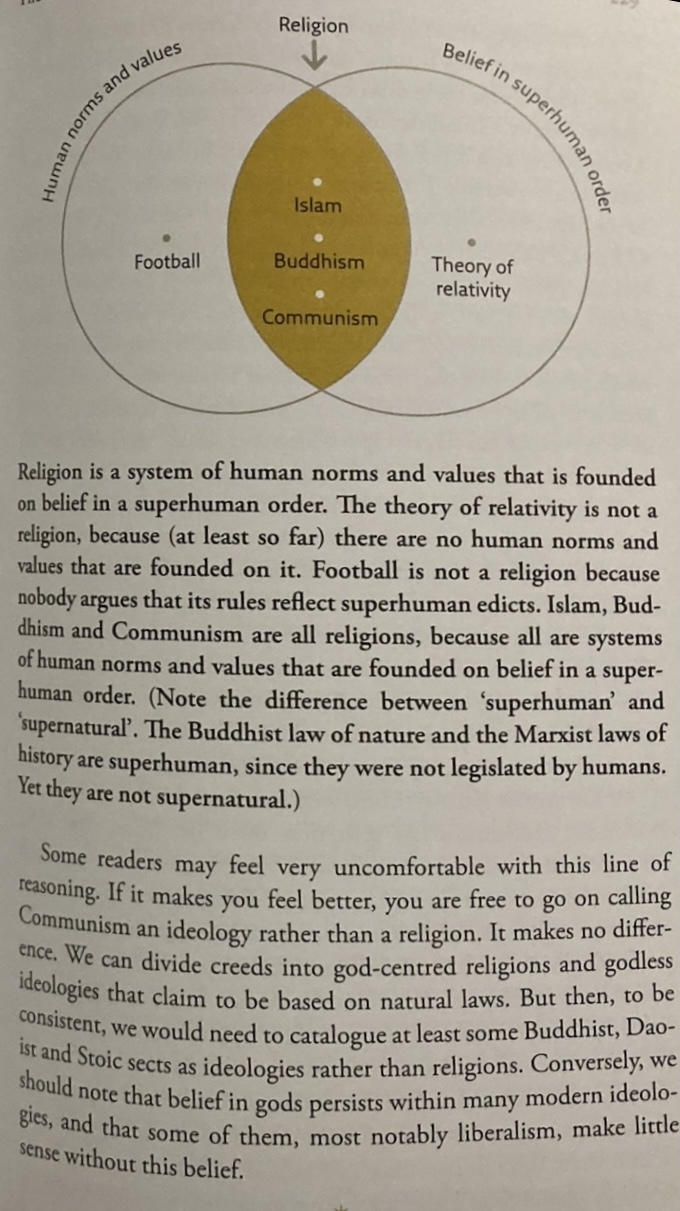
Why insist on such a broad definition of religion? I know it’s hard to define, but this definition is so broad it can include a vast array of things. You believe in gravity because you read a book about it, subscribe to newton’s laws and proceed to drop things move or jump without the expectation of flying away, while believing it’s not good to jump out a window ‘cause you’ll die thanks to gravity? Must be a religion. You read about metal working and the physics behind it (believing it is possible due to the laws of the universe and not human rules) then do metalworking with the intention of making money or something of creative value? Religion. You may object that a religion has to be a worldview, but Harari acts like the only reason the theory of relativity isn’t a religion is because it doesn’t have associated practice or values. Also plenty of communists are Christians or Buddhists (if the atheist kind), and who calls stoicism a religion?

Humanity of corporations or personhood/personality?
Personhood
That’s quite a common view. It didn’t necessarily equate to having humanity. Corporations need personality to act in their own name, enter contacts, etc. It’s a mechanism for protecting shareholders, too, because they can pretend it was the company-person who did XYZ, rather than them.
Sure, humanity wasn’t the right word. His argument that corporations hold the same place in our minds as humans could be used to justify citizens United v fec though.
Oh, I definitely agree with that. Corporations don’t hold the same place as humans in my mind. It can be a useful argument for holding corporations to account but that kind of CSR (corporate social responsibility) has it’s limits.
It gets a bit technical in places because it’s quite an academic book but you might enjoy Grietje Baars, The Corporation, Law, and Capitalism for a good critique of this topic.